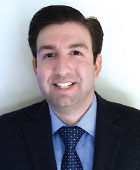Call to Advocacy: End Discrimination Against Health Care Professionals With Substance Use Disorders
Abstract

Matthew Goldenberg, D.O., is board certified in general and addiction psychiatry. He is an experienced evaluator and treatment provider of professionals working in safety sensitive positions (that is, health care professionals and pilots). He is chair of California Public Protection and Physician Health.
As you well know, this country is in the midst of an opioid epidemic. However, there is also a hidden epidemic involving physician suicide. Various sources estimate that hundreds of physicians die by suicide annually; one can only guess at how many hundreds of thousands of patients are affected by this loss.
We know that fear and stigma are two of the major barriers that keep health care professionals from getting help when they suffer from mental illness and addiction, and untreated mental illness is one of the major causes of suicide among health care professionals.
Unfortunately, a new California law likely makes the situation much worse in our state for both health care professionals and public safety. With the supportive testimony from, among others, patient-victims of USA Gymnastic’s Larry Nassar and former USC gynecologist George Tyndall, Gov. Jerry Brown signed into law the Patient’s Right to Know Act (SB 1448) last fall.
Under this law, health care professionals who are under probation by the California licensing boards must ask patients to sign a disclosure at the first visit following the imposition of probation pursuant to several circumstances, including drug or alcohol abuse resulting in harm to patients or to the extent that such use impairs the ability to practice safely. Addiction is now categorized and handled in the same context as criminal behavior like sexual abuse and convictions related to harming patients. This law could lead to more suicides among physicians and other health care professionals.
About 10 percent to 12 percent of health care professionals will suffer from addiction in their lifetime. That is the same prevalence rate as the general population. It has been established that rehabilitation rates for physicians are much higher than those of the general population, between 78 percent and 86 percent.
This law further stigmatizes addiction and increases fear among health care professionals who might be thinking about reaching out for help. Health care professionals with substance use disorders often rely on self-treatment, fearing that reaching out for help will destroy their careers.
When health care professionals in other states become sick, they have access to physician health programs that provide easy access to professional interventions, evaluation, treatment, and monitoring. The services and oversight provided by these programs have been shown to be extremely effective and prevent harm to patients.
Health care professionals, with a simple phone call to a confidential program, are immediately connected to the help that they need. California is one of the only states in the country that does not have a physician health program.
How can you help promote health and wellness among health care professionals?
Please email me if you are interested in getting involved in organized efforts to improve physician health or if you would like to receive email updates about issues related to physician health. My email address is [email protected].
Email me your story of recovery, or the story of a colleague, regarding a struggle with addiction, experience receiving treatment and safely returning to work, and the positive impact this had on the community and patients.
If your hospital or medical system has a well-being committee, become a member or find out whether there is another form of peer support to assist health care professionals in your area of practice.
If you are a California member and are concerned about this new discriminatory law and the negative impact on patient safety, please contact your legislators and/or local professional organization (California Medical Society, California Psychiatric Association, California Society of Addiction Medicine, etc.) and share your opinion. ■



